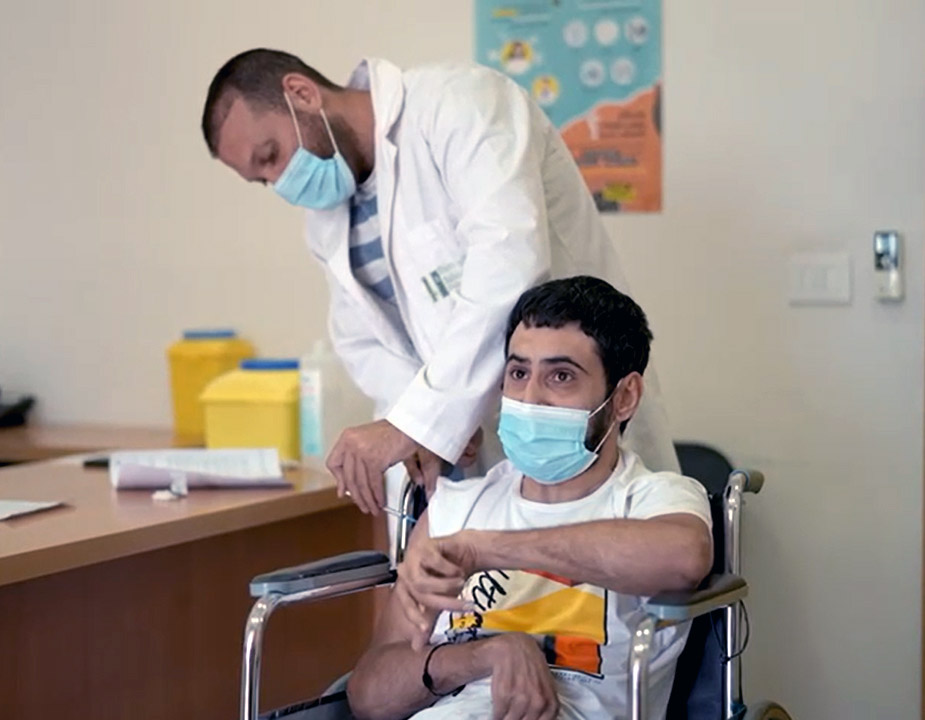
5 July 2021 – Almost one year after the first case of COVID-19 was identified in Lebanon, the Ministry of Public Health began its national vaccination process for COVID-19, based on a detailed plan of action prioritizing population groups based on exposure risks (such as health care workers) and people with potential co-morbidities (such as the elderly). It, unfortunately, overlooked people with disabilities as a potential vulnerable group for COVID-19 infection.
As the outbreak was flaring up, activists, unions, associations and NGOs created accessible information about the virus and precautions to limit transmission to vulnerable groups, supported by United Nations agencies, such as WHO, UNICEF, UNRWA, and other stakeholders. The Learning Center for the Deaf and the Lebanese Federation of the Deaf drafted guidelines for municipalities on methods in targeting people with disabilities in the pandemic.
In order not to leave people with disabilities behind strong and sustained advocacy efforts were deployed by various partners so that people with disabilities were prioritized for vaccination due to their vulnerable status.
These efforts culminated in a Pfizer-BioNTech marathon, organized on 12 and 13 June 2021 in vaccination centres accredited by the Ministry of Public Health, offering COVID-19 vaccines for anyone 16 years and older, Lebanese residents, and people with physical, visual, and hearing impairments, with communication disorders, autism spectrum or with intellectual disabilities. People with disabilities who do not have a disability ID card from the Ministry of Social Welfare were given an opportunity to provide medical reports and register. Huge efforts were put into sharing practical information regarding the vaccination process (centres, how to register, etc.) were shared in different languages (including sign language) and presented in different mediums making to ensure that people could access the information. Moreover, vaccination sites that are accessible to wheelchair users with appropriate ramps were indicated on brochures and volunteers were present in most centres to make the process easier.
All in all, it was a successful run, the 2-day marathon permitted the vaccination of 46 286 residents (including those registered above the age of 53), of whom 9% had disabilities (a total of 4079 people). This represents a small group of the estimated 80 000 people with physical disabilities in Lebanon.
As part of the equitable access, people with all types of disabilities should be able to request prioritization in vaccination, in the hope of decreasing serious health outcomes and mortality due to the virus.







